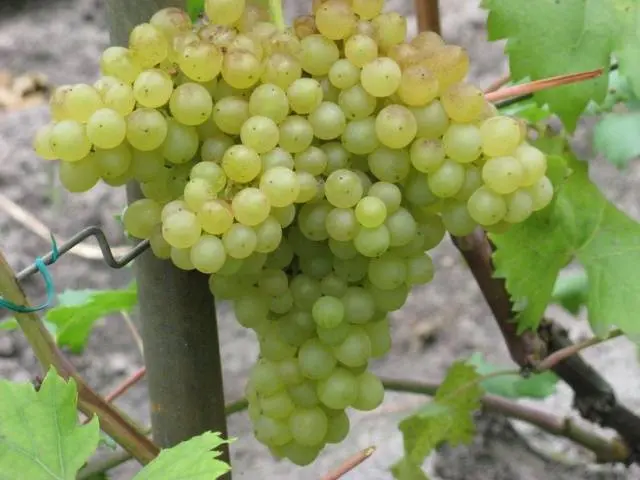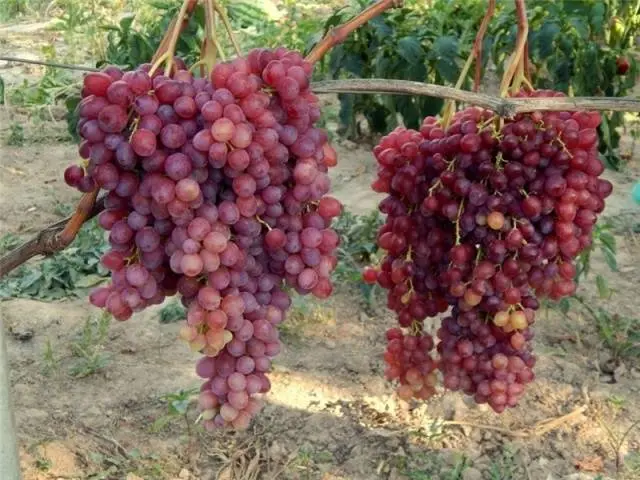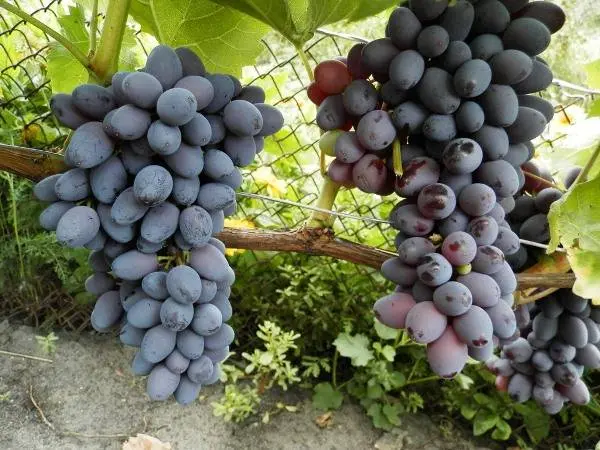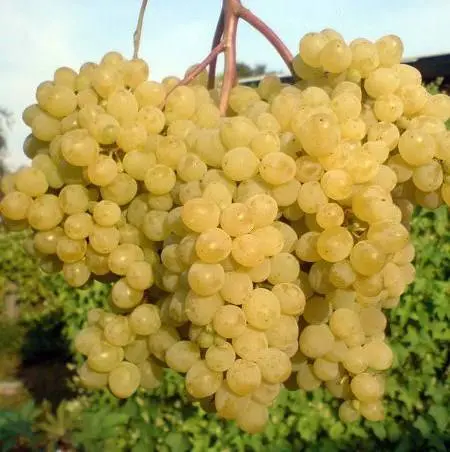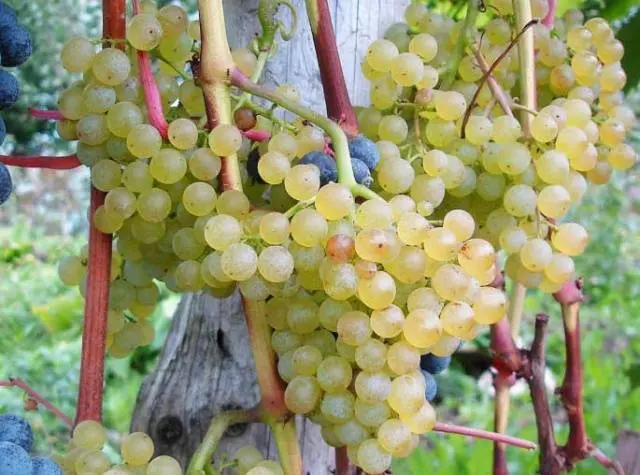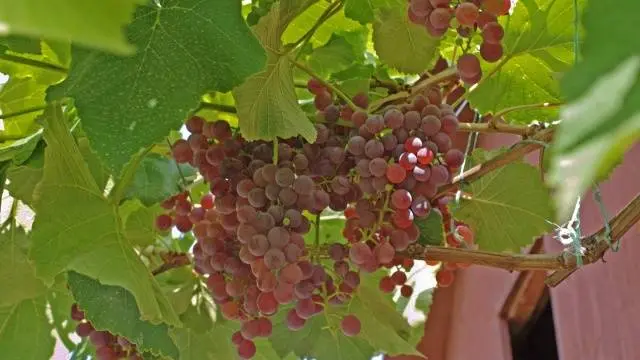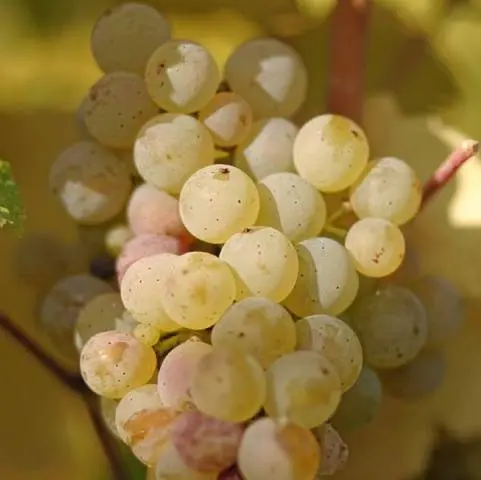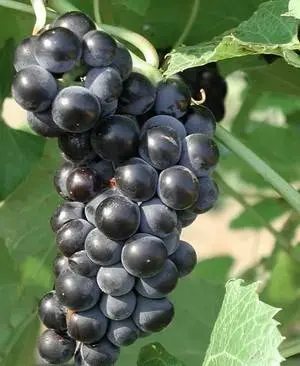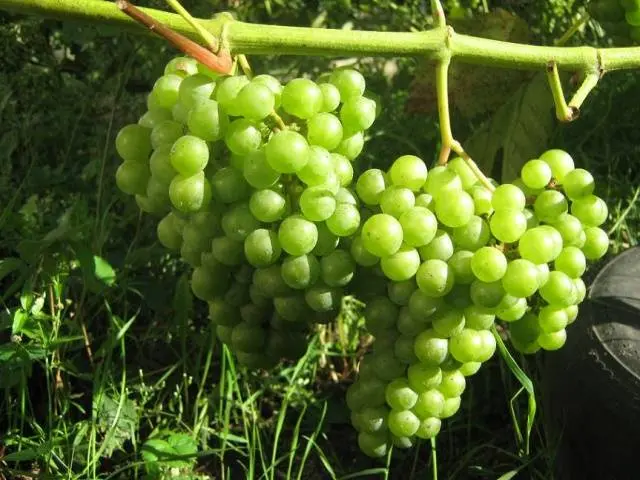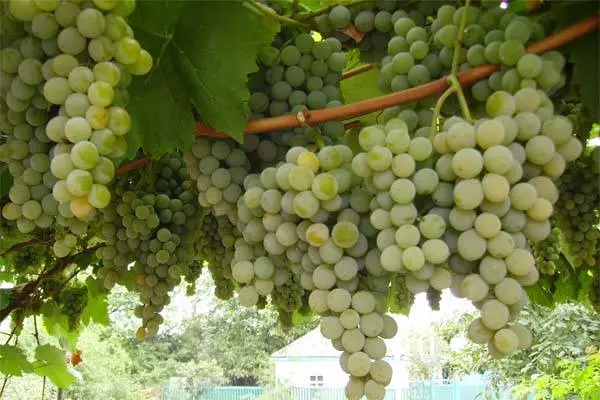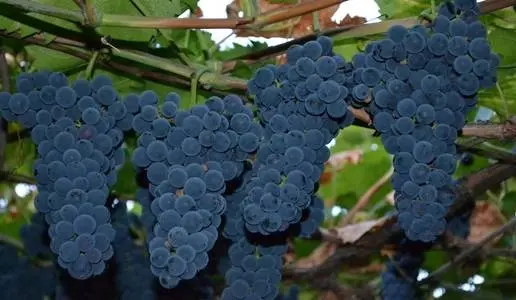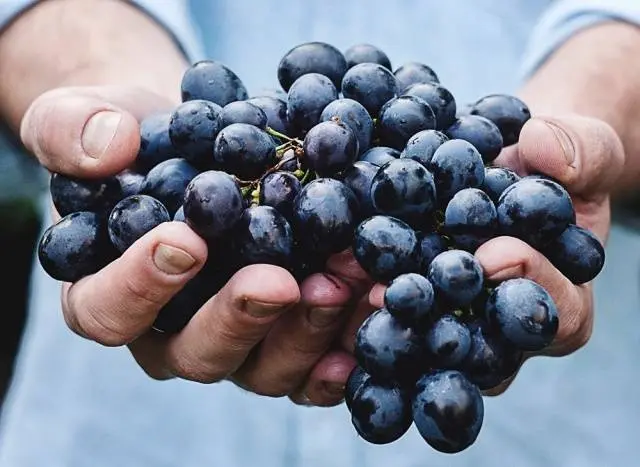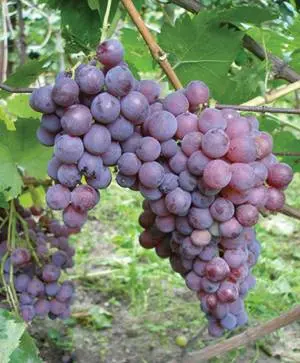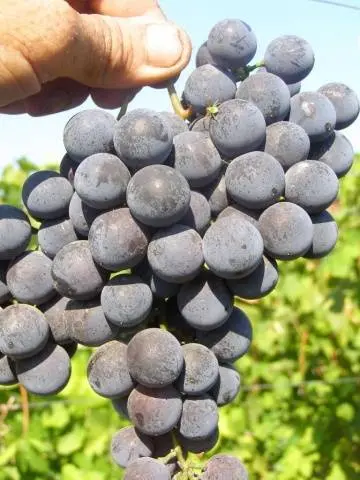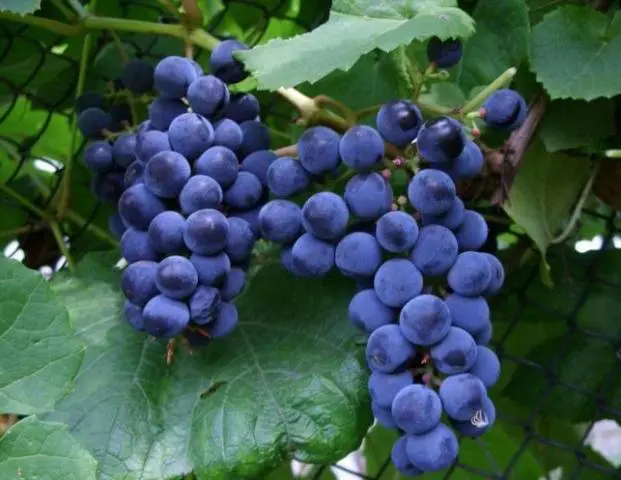Contents
For most people, even inexperienced in viticulture, it is obvious that the timing of the ripening of grapes plays a decisive role in choosing one or another variety when grown in most regions of Our Country. Only southerners can afford to choose between early, medium or late varieties, for the rest it is very important that the grapes have time to somehow ripen before the onset of cold and rainy weather. Otherwise, there is no particular point in growing it, except for purely decorative purposes.
In addition to the ripening of the grapes themselves, no less important is the early and full ripening of the vine. It is this circumstance that can guarantee a good wintering of the bush and therefore plays no less important role than the winter hardiness of the variety itself.
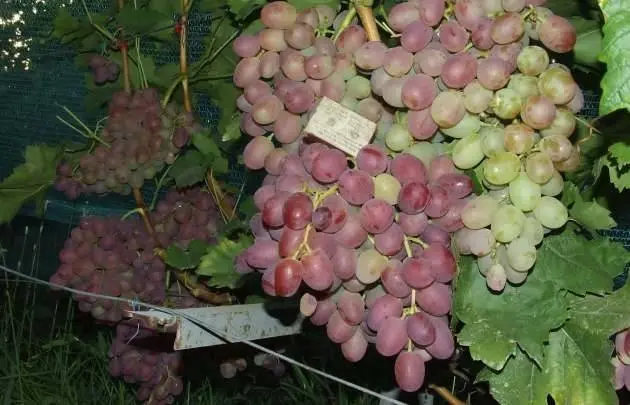
What influences maturity
It is customary to call early varieties of grapes all varieties that have a growing season of four months or less. Or, in other words, the period from the beginning of the life of the kidneys on the shoots to the coloring of the berries on the bushes is no more than 120 days.
True, in grapes, all early varieties are divided, in turn, into three groups:
- Ultra early (ripening period 80-100 days);
- Very early (vegetation period 100-110 days);
- Just early (ripen about 110-120 days).
It is also necessary to understand that for the ripening of grapes, in addition to the number of elapsed days since the start of bud break, other factors also play a significant role.
Among them, the main place is occupied by the heat that grape bushes can receive during the summer. To calculate heat, there is even a special indicator called the sum of active temperatures (or CAT). This indicator can be calculated by adding up all the air temperatures for the period when the average daily temperatures do not fall below +10°C.
In order for the berries of ultra-early grape varieties to ripen, the sum of active temperatures should be from 1800 to 2000 °. Very early varieties need 2000 to 2200° to ripen, and finally regular early grapes will need 2200-2400° as a minimum.
Given these figures, gardeners in the middle zone have to rely on growing only early varieties of grapes on their plots. Although some tricks can help increase SAT by 200-300 ° per season.
- Use of covering structures made of film or non-woven material;
- Planting vine bushes near the southern heated walls of houses and other buildings;
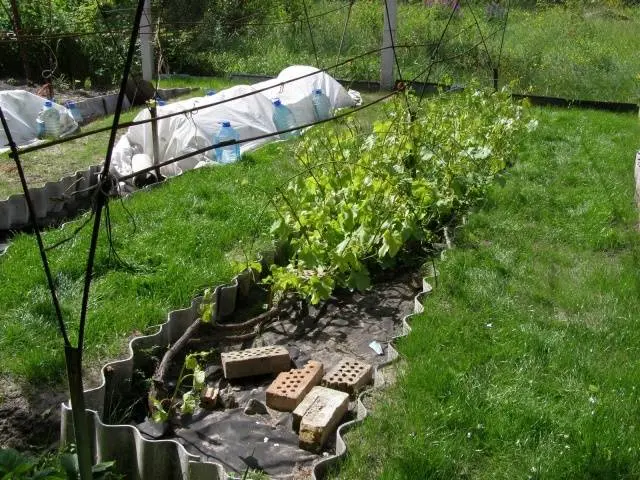
But in addition to heat, the timing of grape ripening is affected by:
- Possibility of return spring frosts;
- Provision of grape bushes with moisture;
- Mechanical composition and fertilization of soils;
- Strength and direction of prevailing winds.
Each grape variety has some measure of resistance to each of these factors. For example, Sphinx and Victor, having approximately the same ripening time (110-115 days), can begin fruiting in completely different periods. Since the Sphinx buds bloom very late and the likelihood of falling under spring frosts is minimal. And Victor starts budding very early, and the first sprouts can be damaged by frost, and after the restoration of the shoots, the ripening period will naturally be delayed.
Therefore, in different conditions, one or another variety may show itself in different ways. It is for the same reason that there are no clear leaders in terms of early maturity. The very earliest grapes in some conditions may ripen 2-3 weeks later in other conditions.
Therefore, if you want to get, first of all, ultra-early grapes, then you must deliberately underload the bushes with a crop.
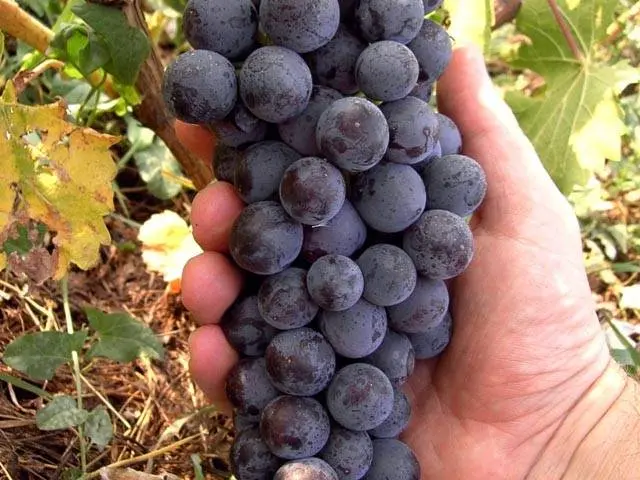
In addition, the very concept of ripeness in relation to grapes is very relative. Usually, grapes are considered mature if they have turned into the shade assigned to them by the variety, have become more or less soft, elastic and have gained a certain amount of sugar content. But some varieties of grapes, including early ones, need to hang on the vines from several weeks to a month after staining to get a real rich taste.
In view of the foregoing, ultra-early grape varieties can ripen from the first half of July (in the southern regions) to early August (in the middle lane). Very early varieties ripen mainly from the end of July to the tenth of August. The ripening period of the remaining early varieties includes the whole of August and until the beginning of September.
In the middle lane, it is desirable to harvest the entire crop in September from all, even later varieties, except for technical ones. The fact is that shoots often cannot fully mature (woody) while clusters are still hanging on them. And if the shoots do not have time to mature, then they can be damaged by the lightest frosts, even under shelters.
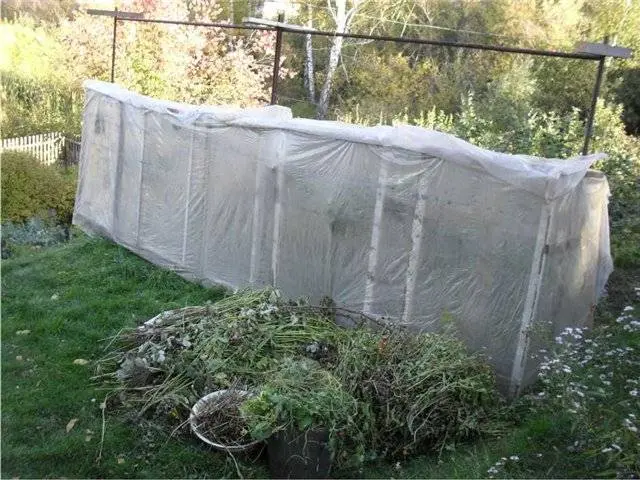
Reasons for growing early ripening varieties
In addition to the most important reason associated with the elementary ripening of berries and shoots, there are several more reasons why early grape varieties are preferred to be grown in many southern regions of Our Country.
- Firstly, it can be more effective, because by harvesting as early as possible, you may not have to deal with most fungal diseases that usually become more active at the end of summer and autumn.
- Secondly, it turns out to be cost-effective. After all, the early harvest of grapes is in higher demand in the market and, accordingly, has a much higher price.
- Finally, even in the middle of summer, even the southerners begin to yearn for the grape taste, which they can fully provide with a few bushes of grapes ripening at the earliest possible time.
Ultra-early maturation
The unique varieties and hybrid forms of grapes described below manage to ripen on average in less than 100 days from the start of bud break. Among them there are fruits of different color and size, but most have good resistance to the main problems of growing grapes. Below is a brief description of the varieties with the most important characteristics that will allow you to determine whether a particular grape variety is right for you and your conditions.
Light in color
In this category, there are the most varieties and hybrid forms, but only the most popular and disease-resistant will be discussed.
Super Extra
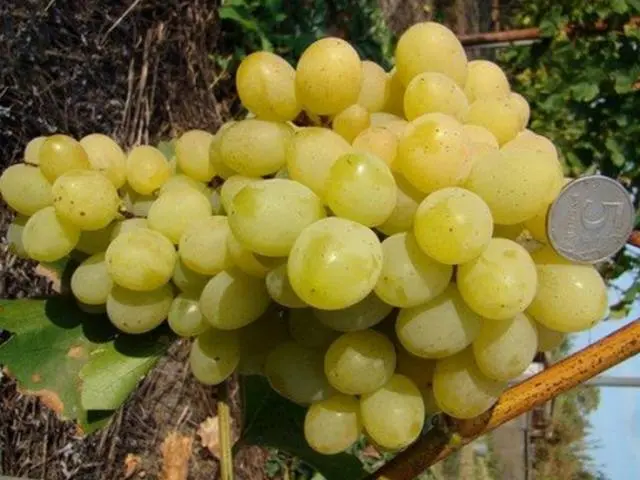
This variety of Pavlovsky selection, fully justifying its name, despite its relative youth, is one of the most popular early grape varieties. In most areas, he is one of the first to keep up. Combining the large size of berries with their beauty and taste, it is also distinguished by the high marketability of relatively large bunches (400-800 g) and their transportability. Shoots also have time to ripen well. In addition, its resistance to fungal diseases is beyond praise, and frost resistance reaches -24 ° C.
F-14-75
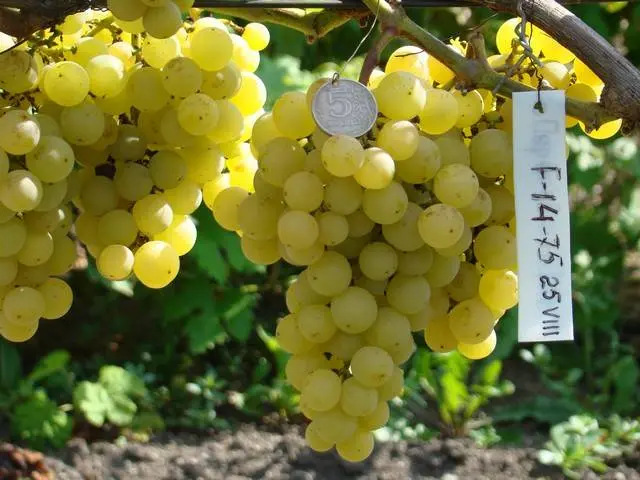
Very easy to care for and stable in fruiting hybrid form from Hungary. Berries with a strong nutmeg, pleasant to the taste, not subject to cracking, and the clusters remain on the bushes for a long time. The growth of the vine is rather weak, but it does not require pinching and rationing. Ripens well, cuttings root perfectly. The size of the berries can be small for a table variety, but it is one of the first to ripen and forgives many mistakes in care. The female type of flower may be considered a disadvantage, but pollinates well with any growing grapes nearby. Resistant to diseases and tolerates frosts down to -26 ° C, recommended for rather harsh conditions.
Olympiad
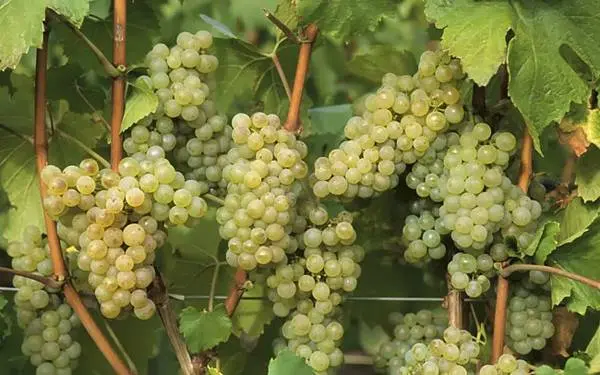
Another of the earliest representatives of the grape family. The variety is quite old, therefore, apart from super early ripening, it is not particularly famous for anything. The yield is average and highly dependent on the conditions of detention. The bush is vigorous, the clusters are small, the berries accumulate a little sugar (15-16), but the acidity is minimal (5-6 g / l). Disease resistance is average.
Harold
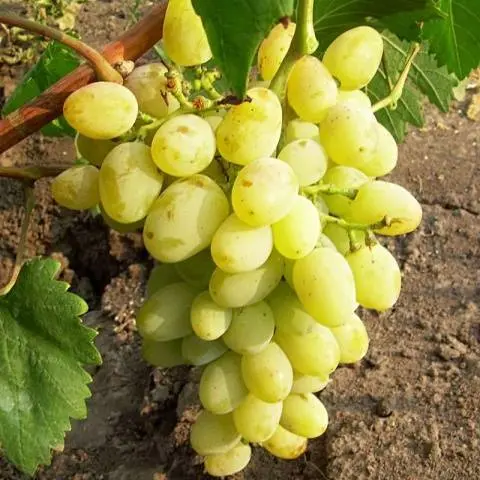
In recent years, one of the most popular grape varieties, due to record early ripeness, harmonious taste with a light nutmeg aroma and good yield. The clusters are medium in size and density, the berries gain sugar up to 20 Brix. Transportability and safety are good. Disease resistance is average.
In Galahad
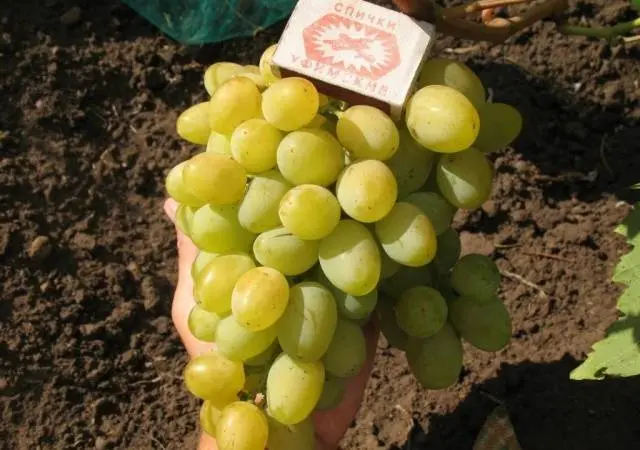
Also a very valuable and popular hybrid form of grapes. Ripens only a week later than Harold, but has a high palatability, which the tasters rated at 8,9 points. Berries and brushes are large, have a high presentation and excellent transportability. The bushes are vigorous, the shoots ripen well, the flowers are bisexual. Disease resistance is at a good level, frost resistance – up to -25 ° C.
Ciravas Agraa
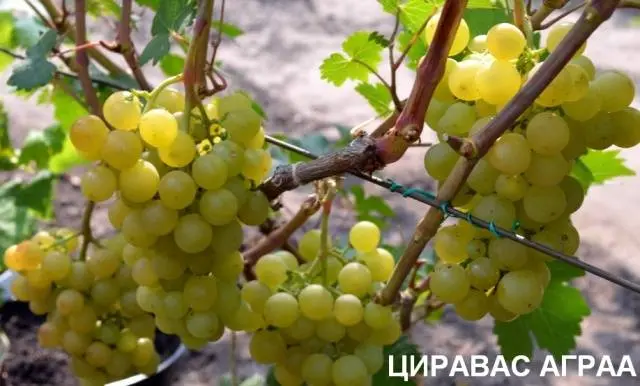
A very interesting and disease-resistant ultra-early grape variety from Latvia. Not very well-known, but very promising variety for growing in the middle lane. According to most indicators, it reaches the middle peasants – in terms of the size of berries, clusters, the strength of the growth of bushes and productivity. But the sugar content manages to gain up to 21 Brix, and the vine ripens well. The flowers are bisexual, tolerates frost down to -23°C.
Elegant Sverkhrannyi
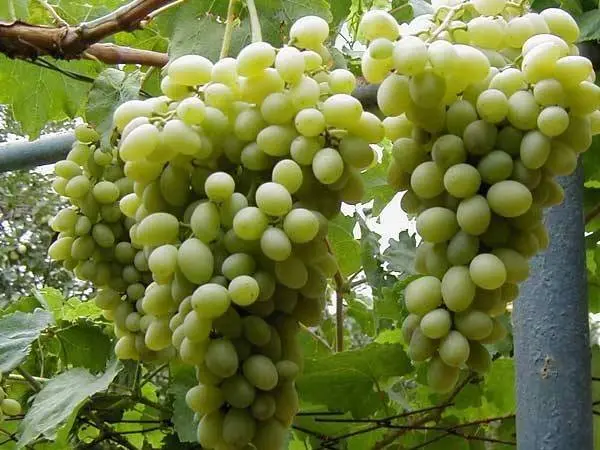
Not claiming to record yields, but a reliable and disease-resistant ultra-early variety. The taste is simple, but the berries remain on the bushes for a long time. The color of the berries is considered not very attractive for the market (white-green), but it can withstand frosts down to -25°C.
Pink
One of the most beautiful and attractive in color are pink grape varieties, among which you can also find several representatives of the ultra-early group.
eva
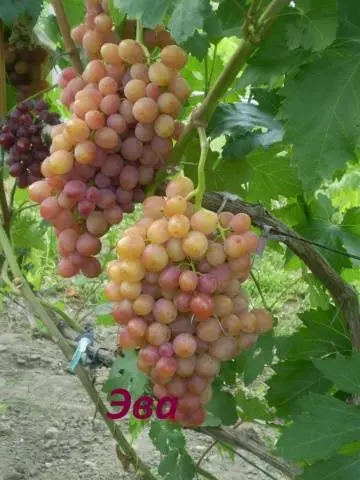
Due to its relative novelty or for some other reason, this hybrid form is not very popular among winegrowers. Of course, the bushes have a significant growth force, and it has to be constantly cut and rationed. But it ripens at the earliest possible time, after 95 days, the berries and brushes are quite large and very beautiful, without peas. Good sugar content up to 22%. Shoots ripen early and along the entire length, which is very pleasant. The cuttings take root perfectly, and the grapes withstand frosts down to -24°C. Disease resistance is not completely understood, treatments are naturally needed, but due to early ripening, the main fight can be transferred to the moment after harvesting the entire crop. All this proves that Eva is promising for growing in the middle zone.
Julian
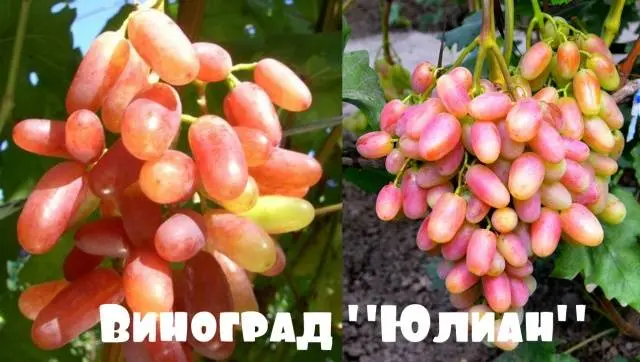
An ultra-early hybrid form with the original form of berries and bunches received from one of its parents – Rizamat. The bushes have great growth strength, the vine matures along its entire length, the cuttings take root by 90-95%. The berries are not only beautiful, but also very tasty, with dense crispy flesh and good sugar accumulation. To obtain good yields, normalization is required, it is characterized by above average resistance to diseases.
Dark colored varieties
There are not so many high-quality dark-colored ultra-early grape varieties.
The beauty of Nikopol
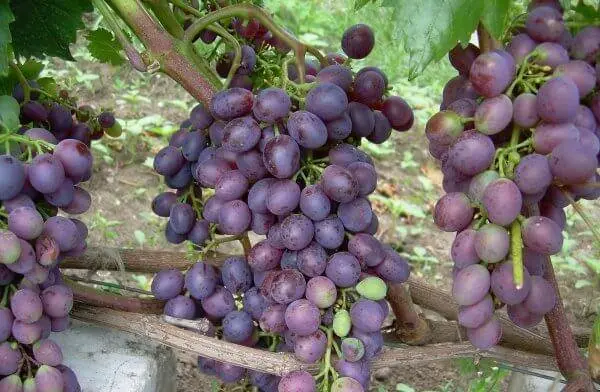
It is considered one of the best grape varieties with ultra-early ripening of berries. Very fruitful and powerful grapes, bunches and berries have an excellent trade dress and harmonious taste. The disadvantage is the relative instability to mildew, which can be corrected by spraying the bushes after the return of the crop.
The video below allows you to get an idea about this variety, as well as the sultana super-early grape variety Veles.
Super early red muscat
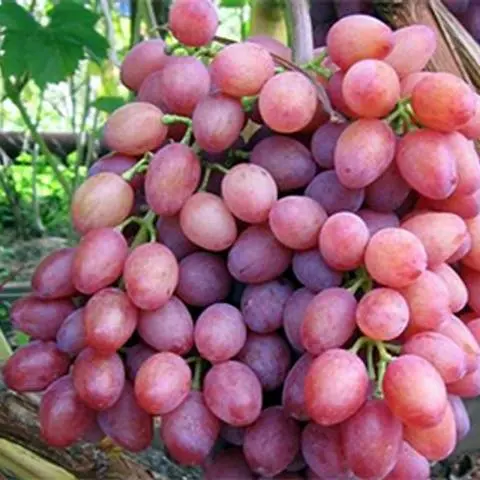
Curious very early form of grapes from Moldova. The berries are very similar in shape to the Cardinal variety, but smaller in size. She has a peculiarity, the older the bush, the larger the clusters and berries in them become. Berries when ripe change color from red to almost purple.
Anniversary of the Kherson summer resident
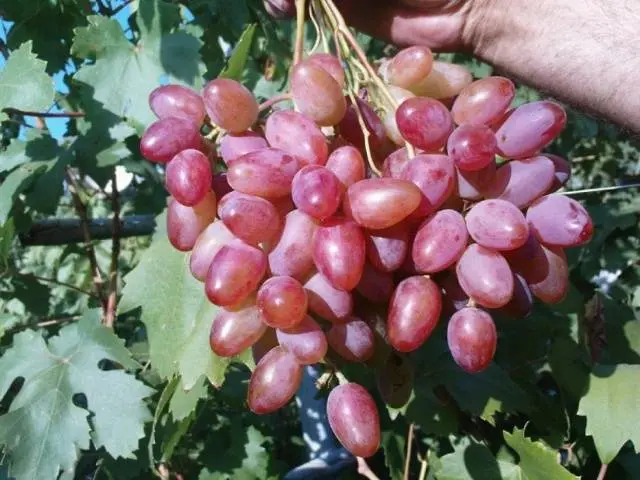
A fairly new hybrid form of grapes from Ukraine is already very popular due to its ultra-early ripeness, the pleasant taste of berries with nutmeg notes, their attractive appearance and rather high winter hardiness of the bushes. The berries are large pink in color, in the sun they acquire an additional dark “tan”.
Viking
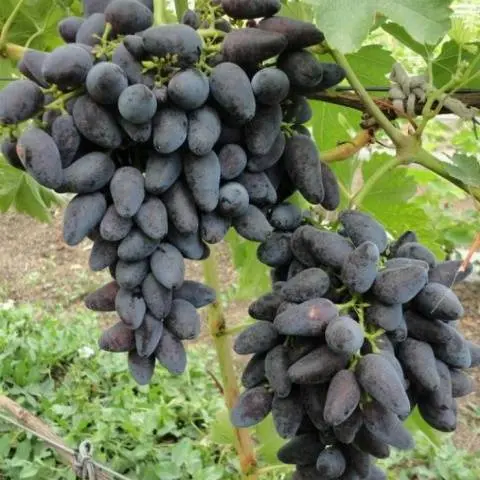
Another popular ultra-early hybrid form with early and full ripening of all shoots. Bushes are vigorous and productive. Elongated berries are able to remain on the vine for several months. Disease resistance is average – requires mandatory treatments.
Rhombic
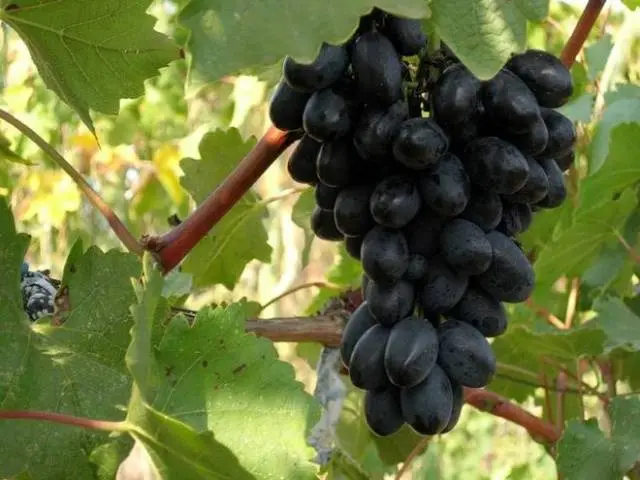
A completely new hybrid form of grapes, the fruits of which have an original diamond shape. The taste of berries is also unusual, it has some fruity notes. One of the first to ripen, but disease resistance has not yet been fully studied.
Kishmishi
Among the seedless varieties of grapes, there are also super-early ones in terms of ripening.
Super early seedless
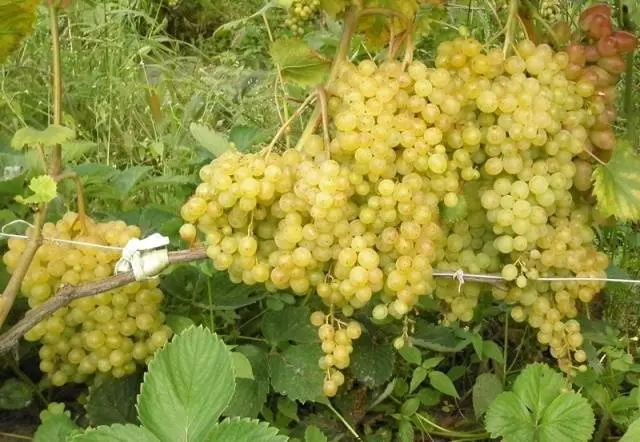
The very name of this variety eloquently testifies to its main characteristics. Harvest can begin to be harvested 80-85 days after the start of the growing season. This sultana is quite enough SAT about 1800 ° for full maturation. The berries have a tasty, crisp flesh with a thin skin and can be used for drying. Yield and disease resistance are average. But shoots ripen well.
Somerset sidlis
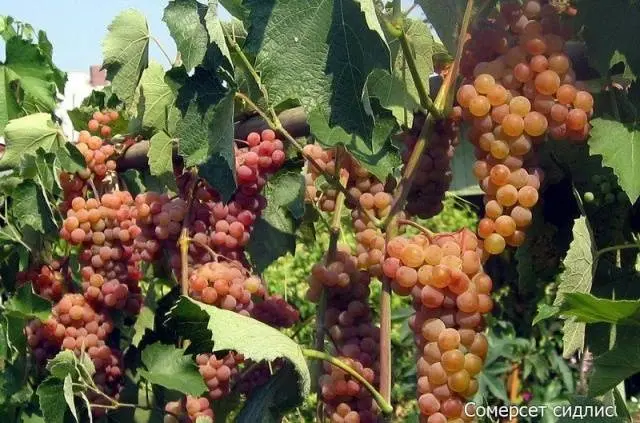
It is considered the best seedless variety for northern viticulture, as it can withstand frosts down to -32°-34°C. Ripens one of the first. Clusters and berries are medium-sized, pinkish in color with a pleasant taste. The yield is average, but you have to pay for frost resistance and early maturity.
Very early and early maturing
There are quite a few varieties of grapes belonging to this group. Some of them have been bred for a long time, and new hybrid forms with early maturation are also popular. The following are early table grape varieties (100 to 120 days ripening) that have at least moderate resistance to major diseases and are popular with gardeners.
- Timur;
- Delight;
- Nadezhda Aksaiskaya;
- Libya;
- Aladdin;
- Serafimovsky;
- Gingerbread Man;
- Argo;
- Azalea;
- Amethyst Novocherkassk;
- Athos;
- Victor;
- Gift Unsvetaya;
- Victoria;
- Sphinx;
- Rochefort;
- Kodryanka;
- Cardinal Suite;
- Catalonia;
- Memory of the teacher;
- Transfiguration;
- Shevchenko.
There are quite a few interesting raisins in this category, the most popular of them are as follows:
- Kishmish 342 or Hungarian

- Velez

- Jupiter

- Rusball improved

- Corinka

- Reallines Pink Seeds

Of particular note are the so-called technical or wine grape varieties with early ripening. Among them, the Hungarian Crystal variety stands out, which is characterized by high productivity, early ripeness, winter hardiness and a completely harmonious taste of berries, which allows some to classify it as a universal grape variety.
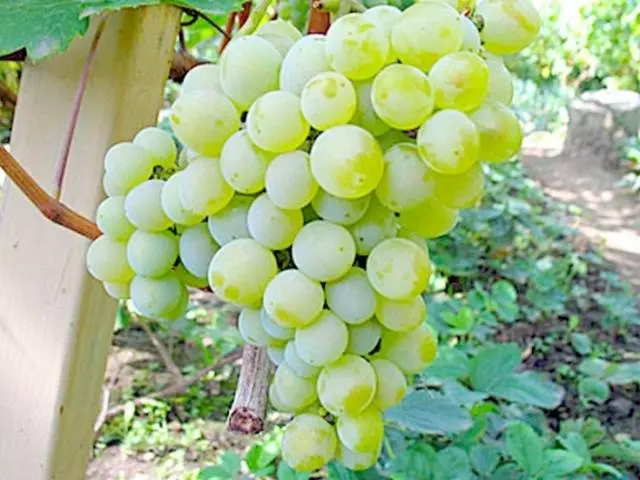
Other early ripe technical varieties include:
- Reform

- Lando noir
- Valiant

- Kay Gray

It should be noted that since most of them have a fairly high winter hardiness, many of them can be grown in uncovered culture, on arches or arbors.
Among the most resistant early uncovered grape varieties can also be noted:
- Pineapple early

- Price

- Juodupe

- K-878

- Griffin

- Sharov’s riddle

The winter hardiness of most of these varieties is at the level of -28 ° -32 ° С, so you can try to grow them as non-covering ones, even in central Our Country.
As it became obvious to you, there are a lot of early grape varieties, so you can easily choose the right grape for your taste, and focusing on your specific conditions on the site.










